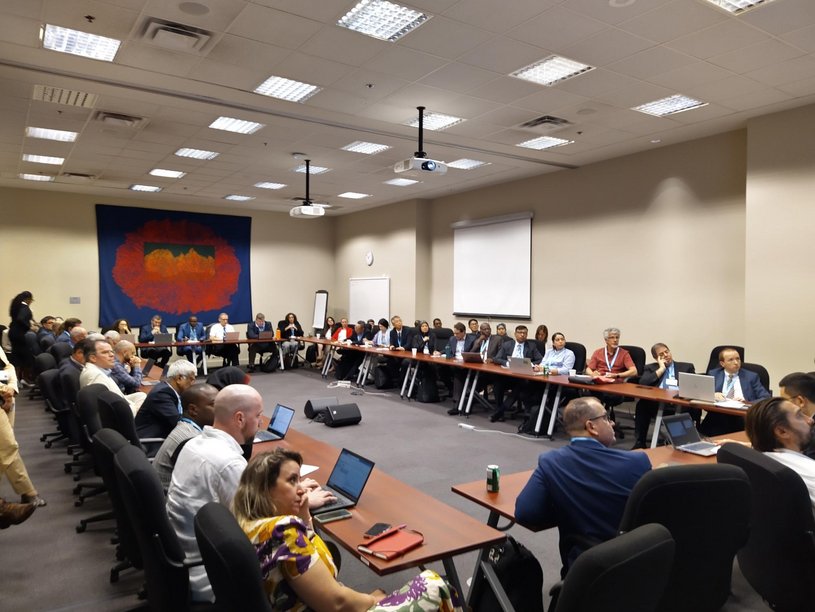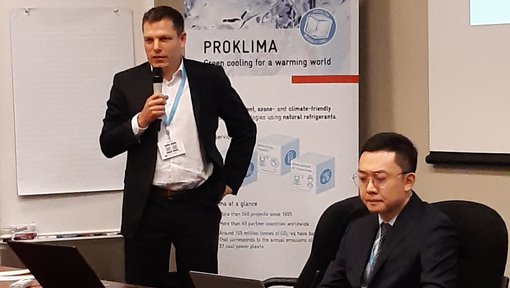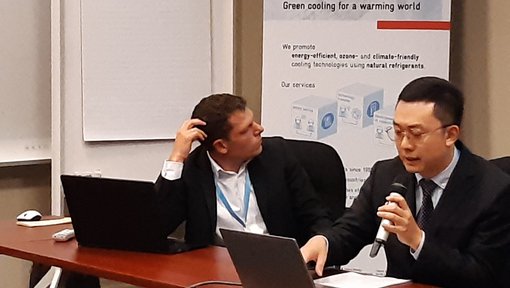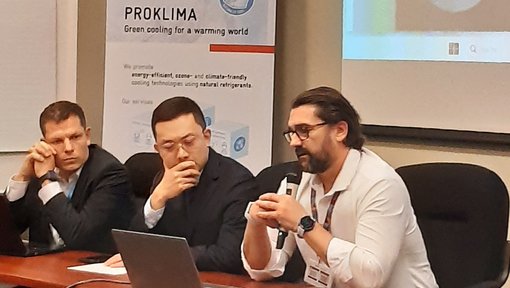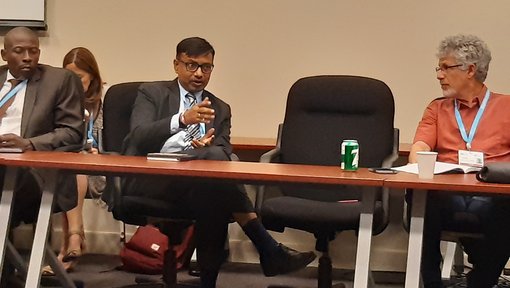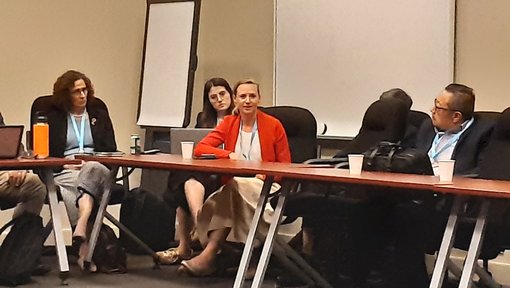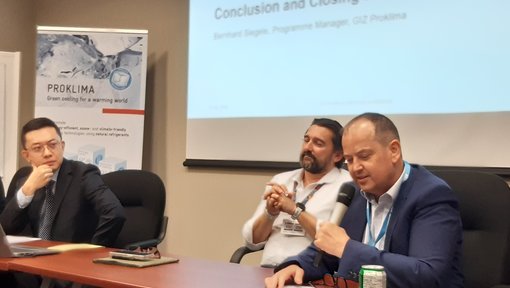To break the vicious circle of rising temperatures, growing demand for cooling and constantly increasing greenhouse gas emissions from cooling, we need to switch to Green Cooling. Our first side event at the OEWG46 in Montreal provided insights into the interactions between suitable regulatory frameworks and market trends that are accelerating future friendly ACs and heat pumps usage in China and Europe. The second side event put spotlight on a sustainable refrigerant management to reduce greenhouse gas emissions as well as ozone-depleting substances from end-of-life cooling equipment.
Leapfrogging to highly energy efficient air conditioners and heat pumps using natural refrigerants has a huge mitigation potential at very low costs. It is estimated that “Green ACs” alone could reduce global warming by over 0.1 degrees Celsius. With these clear statements by Sebastian Schnatz from the Germany Federal Ministry for Environment, Nature Conservation, Nuclear Safety and Consumer Protection, the audience of the first GIZ Proklima side event “Market trends on future friendly ACs and heat pumps” on Monday, 8 July, had been attuned to the topic.
The following speakers emphasized, that a transition towards more future friendly refrigerants is shaping the AC and heat pump industry. China for example is the biggest producer of Green ACs. Shang Shuwen (Foreign Economic Cooperation Center of the Ministry of Ecology and Environment) pointed out how the sector has been working on and investing in the adoption of propane (R290) for more than a decade. China's progress in adopting R290 has been driven by the support of the Multilateral Fund and international agencies, as well as bilateral government collaborations. “This effort aims to promote the widespread use of R290 and contributes to the achievement of global sustainability goals in the air conditioning sector”, Shang Shuwen said.
photo gallery
Switching continent, Marc Chasserot from ATMOsphere, a global, independent market accelerator, showed that the transition towards natural refrigerants is already underway in Europe. For example, there are already 5,000 industrial sites with hydrocarbon-based chilllers installed in Europe, and 90% of new stores today are based on CO2 and propane. The heating sector is also increasingly using natural refrigerants: In 2022, 225.000 propane heat pumps were sold in Europe. Chasserot anticipated that transitions will be fast as it is fostered by the EU F-Gas regulation. After a lively Q&A session with participants from different sectors, Bernhard Siegele, programme manager of GIZ Proklima concluded the side event with his closing remarks.
The second side event at OEWG46 on “Accelerating the destruction of ODS waste: an open discussion on the role and lessons-learned of the Climate and Ozone Protection Alliance” on Thurdays, 11 Julywas organized by GIZ Proklima and UNIDO. For more information click here to reach the website of the Climate and Ozone Protection Alliance (COPA). (opens in a new window)

 Image: Shutterstock
Image: Shutterstock